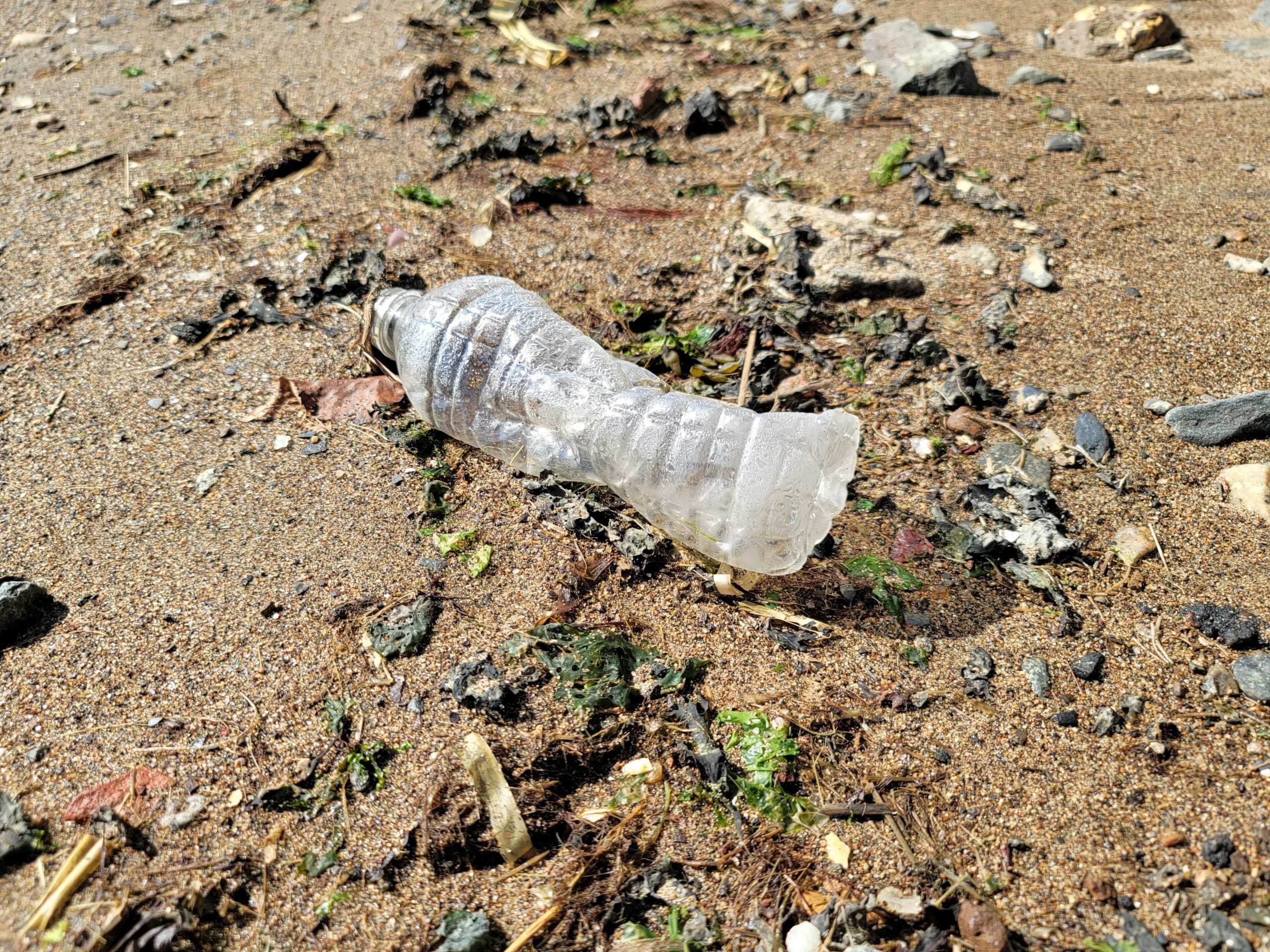Panel discussion featuring solution-minded individuals who will share and discuss related issues. Panelists are: Eva Touhey the program manager at Clean Ocean Access, an environmental nonprofit located in Middletown, RI.; Anna Robuck, researcher at the Icahn School of Medicine at Mount Sinai with a Ph.D. from the URI Graduate School of Oceanography; Michaela Cashman, researcher at U.S. Environmental Protection Agency and PhD candidate at URI; Kara Lavender Law, research professor of oceanography at the Sea Education Association; and Evan Ridley, director of environmental programs at the Rhode Island Marine Trades Association.
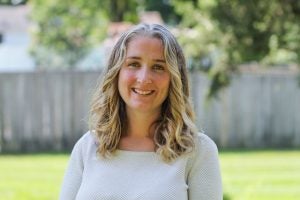 Panelist: Michaela Cashman is a Biologist at the US Environmental Protection Agency’s Atlantic Coastal Environmental Sciences Division in Narragansett, Rhode Island. Michaela’s research focuses on contaminants of emerging concern, with an emphasis on man-made chemicals in marine environments. One aspect of her research are microplastics: small pieces of plastic (<1 mm) that end up in our environment. In 2019, Michaela collected sediment samples from Narragansett Bay, Rhode Island to analyze for microplastics. Her research is one of the first attempts to characterize microplastics on the ocean floor of Narragansett Bay. Michaela is also a PhD candidate at the University of Rhode Island in the Department of Geosciences.
Panelist: Michaela Cashman is a Biologist at the US Environmental Protection Agency’s Atlantic Coastal Environmental Sciences Division in Narragansett, Rhode Island. Michaela’s research focuses on contaminants of emerging concern, with an emphasis on man-made chemicals in marine environments. One aspect of her research are microplastics: small pieces of plastic (<1 mm) that end up in our environment. In 2019, Michaela collected sediment samples from Narragansett Bay, Rhode Island to analyze for microplastics. Her research is one of the first attempts to characterize microplastics on the ocean floor of Narragansett Bay. Michaela is also a PhD candidate at the University of Rhode Island in the Department of Geosciences.
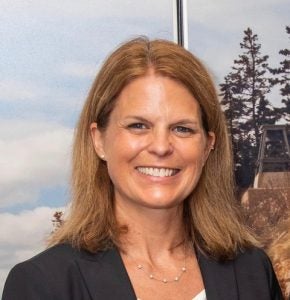 Panelist: Kara Lavender Law is a Research Professor of Oceanography at Sea Education Association (SEA; Woods Hole, MA), studying the sources, distribution, transformation and fate of plastic debris in the ocean. Trained as a physical oceanographer, Dr. Law has more than 12 months of sea time on oceanographic and sailing research vessels, including in the eastern North Pacific and western North Atlantic Oceans where plastic debris accumulates in regions dubbed, “garbage patches”. Dr. Law’s current research interests focus on the sources of plastic to the marine environment, understanding how ocean physics determines the distribution of plastic and other marine debris, and the degradation and ultimate fate of different plastic materials in the ocean. She serves on the U.S. National Academies Committee on U.S. Contributions to Global Ocean Plastic Waste, is vice-chair of the Scientific Committee on Oceanic Research (SCOR) Working Group FLOTSAM (Floating Litter and its Oceanic TranSport Analysis and Modelling), and served as the co-principal investigator of the Marine Debris Working Group at the National Center for Ecological Analysis and Synthesis (NCEAS). Dr. Law holds a PhD in physical oceanography from Scripps Institution of Oceanography and a BS in mathematics from Duke University.
Panelist: Kara Lavender Law is a Research Professor of Oceanography at Sea Education Association (SEA; Woods Hole, MA), studying the sources, distribution, transformation and fate of plastic debris in the ocean. Trained as a physical oceanographer, Dr. Law has more than 12 months of sea time on oceanographic and sailing research vessels, including in the eastern North Pacific and western North Atlantic Oceans where plastic debris accumulates in regions dubbed, “garbage patches”. Dr. Law’s current research interests focus on the sources of plastic to the marine environment, understanding how ocean physics determines the distribution of plastic and other marine debris, and the degradation and ultimate fate of different plastic materials in the ocean. She serves on the U.S. National Academies Committee on U.S. Contributions to Global Ocean Plastic Waste, is vice-chair of the Scientific Committee on Oceanic Research (SCOR) Working Group FLOTSAM (Floating Litter and its Oceanic TranSport Analysis and Modelling), and served as the co-principal investigator of the Marine Debris Working Group at the National Center for Ecological Analysis and Synthesis (NCEAS). Dr. Law holds a PhD in physical oceanography from Scripps Institution of Oceanography and a BS in mathematics from Duke University.
 Panelist: Evan Ridley is Director of Environmental Programs at the Rhode Island Marine Trades Association. The focus of his work has centered on the development and growth of several sustainability initiatives in the recreational boating industry. This includes the reintroduction of the Rhode Island Clean Marina certificate and the creation and launch of the Rhode Island Fiberglass Vessel Recycling Pilot Project, an effort to establish alternatives to landfilling for end-of-life fiberglass boats and their materials. His research on this topic is distributed within a growing network of international stakeholders and collaborators. In 2020, he was included in Boating Industry’s “40 Under 40.” Ridley received his BA and Master’s degree in Marine Affairs from the University of Rhode Island. Interests in plastic pollution: composite materials, recycling supply-chain development, recycling technologies, marine debris prevention, end-user education, policy and legislation, community recycling, etc. Participant in Governor Gina Raimondo’s Taskforce to Tackle Plastics in 2018, member of the American Composite Manufacturers Association Council on Sustainability, Contributor to 6th International Conference on Marine Debris, Chair of the Newport Energy & Environment Council.
Panelist: Evan Ridley is Director of Environmental Programs at the Rhode Island Marine Trades Association. The focus of his work has centered on the development and growth of several sustainability initiatives in the recreational boating industry. This includes the reintroduction of the Rhode Island Clean Marina certificate and the creation and launch of the Rhode Island Fiberglass Vessel Recycling Pilot Project, an effort to establish alternatives to landfilling for end-of-life fiberglass boats and their materials. His research on this topic is distributed within a growing network of international stakeholders and collaborators. In 2020, he was included in Boating Industry’s “40 Under 40.” Ridley received his BA and Master’s degree in Marine Affairs from the University of Rhode Island. Interests in plastic pollution: composite materials, recycling supply-chain development, recycling technologies, marine debris prevention, end-user education, policy and legislation, community recycling, etc. Participant in Governor Gina Raimondo’s Taskforce to Tackle Plastics in 2018, member of the American Composite Manufacturers Association Council on Sustainability, Contributor to 6th International Conference on Marine Debris, Chair of the Newport Energy & Environment Council.
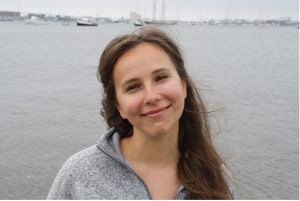 Panelist: Anna Robuck is an environmental chemist and oceanographer studying chemical and plastic pollution in natural and human environments. Her current works seeks to measure plastic and plastic-derived chemicals in a range of human tissues using advanced mass spectrometry tools, as a research fellow in the High Resolution Exposomics Group at the Icahn School of Medicine at Mt. Sinai. She earned a Ph.D. in Oceanography in 2020 from the University of Rhode Island Graduate School of Oceanography, during which she orchestrated a large-scale necropsy and analysis program to assess the occurrence of ingested micro- and mesoplastics in Massachusetts Bay seabirds over time. Her dissertation was supported by the highly selective NOAA Dr. Nancy Foster Scholarship, the ORISE Research Fellowship within the US EPA, and a traineeship in the NIEHS Superfund Research Program. Anna also holds a BS in Marine Biology and Chemistry, and a MSc in Marine Science and GIS, both from the University of North Carolina Wilmington.
Panelist: Anna Robuck is an environmental chemist and oceanographer studying chemical and plastic pollution in natural and human environments. Her current works seeks to measure plastic and plastic-derived chemicals in a range of human tissues using advanced mass spectrometry tools, as a research fellow in the High Resolution Exposomics Group at the Icahn School of Medicine at Mt. Sinai. She earned a Ph.D. in Oceanography in 2020 from the University of Rhode Island Graduate School of Oceanography, during which she orchestrated a large-scale necropsy and analysis program to assess the occurrence of ingested micro- and mesoplastics in Massachusetts Bay seabirds over time. Her dissertation was supported by the highly selective NOAA Dr. Nancy Foster Scholarship, the ORISE Research Fellowship within the US EPA, and a traineeship in the NIEHS Superfund Research Program. Anna also holds a BS in Marine Biology and Chemistry, and a MSc in Marine Science and GIS, both from the University of North Carolina Wilmington.
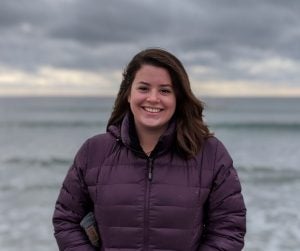 Panelist: Eva Touhey currently works as the program manager at Clean Ocean Access, an environmental nonprofit located in Middletown, RI. Eva attended Hobart and William Smith Colleges for her undergraduate studies, where she double majored in biology and music. She received her Master of Arts in Marine Affairs at the University of Rhode Island studying the influence of plastic bag bans on pro-environmental behaviors in Rhode Island Coastal Communities. Eva has worked at Clean Ocean Access since 2015, beginning as an intern, moving to part-time and then becoming the full-time program manager upon completing her master’s degree in May 2019. Her responsibilities include overseeing the founding programs about eliminating marine debris, improving water quality and protecting public shoreline access, the Healthy Soils Healthy Seas RI composting initiative, and the organization’s education and outreach.
Panelist: Eva Touhey currently works as the program manager at Clean Ocean Access, an environmental nonprofit located in Middletown, RI. Eva attended Hobart and William Smith Colleges for her undergraduate studies, where she double majored in biology and music. She received her Master of Arts in Marine Affairs at the University of Rhode Island studying the influence of plastic bag bans on pro-environmental behaviors in Rhode Island Coastal Communities. Eva has worked at Clean Ocean Access since 2015, beginning as an intern, moving to part-time and then becoming the full-time program manager upon completing her master’s degree in May 2019. Her responsibilities include overseeing the founding programs about eliminating marine debris, improving water quality and protecting public shoreline access, the Healthy Soils Healthy Seas RI composting initiative, and the organization’s education and outreach.
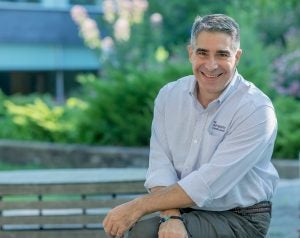 Moderator: Peter Snyder serves as the Vice President for Research & Economic Development at URI, where he is also a professor of biomedical and pharmaceutical sciences in the College of Pharmacy. Dr. Snyder oversees the research mission of the university, and he simultaneously maintains a robust research program centered on biomarkers development for detection of high-risk for Alzheimer’s disease in pre-symptomatic individuals. Dr. Snyder is the Senior Associate Editor of Alzheimer’s & Dementia: The Journal of the Alzheimer’s Association, and he is the Editor-in-Chief for Alzheimer’s & Dementia: Diagnosis, Assessment & Disease Monitoring (an open access journal of the Alzheimer’s Association). Dr. Snyder publishes regularly within his field, and he has delivered over 250 presentations at international scientific conferences. Over the past two years, Prof. Snyder has spearheaded the establishment of URI’s first university-wide “signature research initiative”, branded as a Co-Laboratory (COLAB) or laboratory without walls. The Plastics: Land to Sea COLAB now involves the efforts of nearly 50 faculty across six of URI’s colleges, with approximately $8M in external funding, and this effort factors in prominently in URI’s recent submission for an EPSCoR Track I award. The Plastics COLAB, to be based out of the URI Coastal Institute, will welcome broad participation across the university, engage our citizenry as active partners, will seek meaningful partnerships both domestically and abroad, and will focus on applying core strengths of this university to identify innovative technological, chemical, engineering, public and environmental policy, regulatory and educational solutions to slow the pace of human contamination of our world’s oceans by nano-, micro- and macro-plastics.
Moderator: Peter Snyder serves as the Vice President for Research & Economic Development at URI, where he is also a professor of biomedical and pharmaceutical sciences in the College of Pharmacy. Dr. Snyder oversees the research mission of the university, and he simultaneously maintains a robust research program centered on biomarkers development for detection of high-risk for Alzheimer’s disease in pre-symptomatic individuals. Dr. Snyder is the Senior Associate Editor of Alzheimer’s & Dementia: The Journal of the Alzheimer’s Association, and he is the Editor-in-Chief for Alzheimer’s & Dementia: Diagnosis, Assessment & Disease Monitoring (an open access journal of the Alzheimer’s Association). Dr. Snyder publishes regularly within his field, and he has delivered over 250 presentations at international scientific conferences. Over the past two years, Prof. Snyder has spearheaded the establishment of URI’s first university-wide “signature research initiative”, branded as a Co-Laboratory (COLAB) or laboratory without walls. The Plastics: Land to Sea COLAB now involves the efforts of nearly 50 faculty across six of URI’s colleges, with approximately $8M in external funding, and this effort factors in prominently in URI’s recent submission for an EPSCoR Track I award. The Plastics COLAB, to be based out of the URI Coastal Institute, will welcome broad participation across the university, engage our citizenry as active partners, will seek meaningful partnerships both domestically and abroad, and will focus on applying core strengths of this university to identify innovative technological, chemical, engineering, public and environmental policy, regulatory and educational solutions to slow the pace of human contamination of our world’s oceans by nano-, micro- and macro-plastics.

